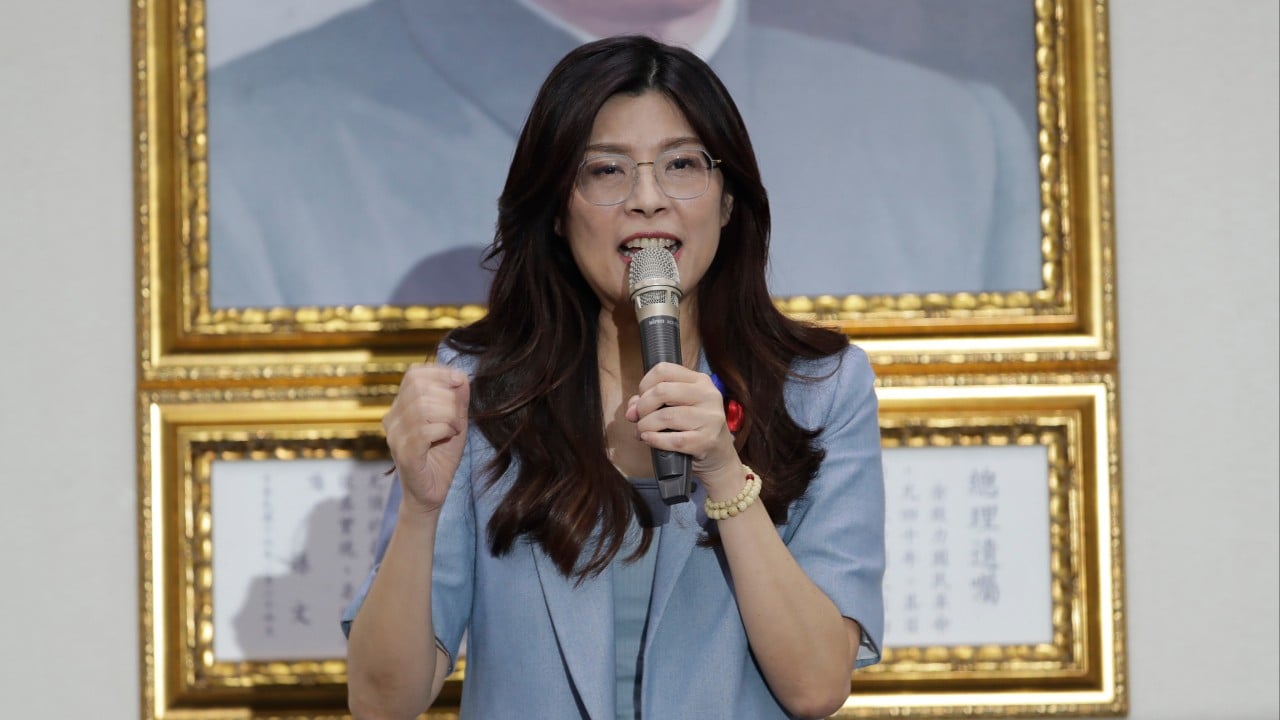The choice of an outspoken former legislator as chairwoman of Taiwan’s biggest opposition party may address the growing internal fatigue with the Kuomintang’s (KMT) old guard, but analysts warn it is far from certain that what appealed to members will win over mainstream voters.
Advertisement
Cheng Li-wun, a 55-year-old with roots in street activism and an early career inside the independence-leaning Democratic Progressive Party (DPP), defeated 73-year-old heavyweight Hau Lung-bin in last weekend’s election to pick the KMT’s new party chair.
Her unexpected victory was seen as a sign of members’ fatigue with the party’s old guard and frustration after nearly a decade out of power.
Next year’s local elections will be the first test of whether her Beijing-friendly instincts can help revive the party’s fortunes, to be followed by elections to pick the island’s leader in 2028.
“Her win reflects growing impatience among members who want new blood after more than nine years in opposition,” a senior KMT official said, speaking on condition of anonymity.
Advertisement
“Her fearless and outspoken image resonates with members eager for a fighter who can take on the DPP both in the legislature and on television talk shows.”
Yet the same official conceded a sobering reality. Cheng secured 65,122 votes, or 50.15 per cent, in a contest that laid bare both her appeal to restless members and the party’s shrinking base. Turnout was 39.46 per cent among 331,145 eligible party members – the lowest total for any winning KMT chair since direct elections began in 2001.

